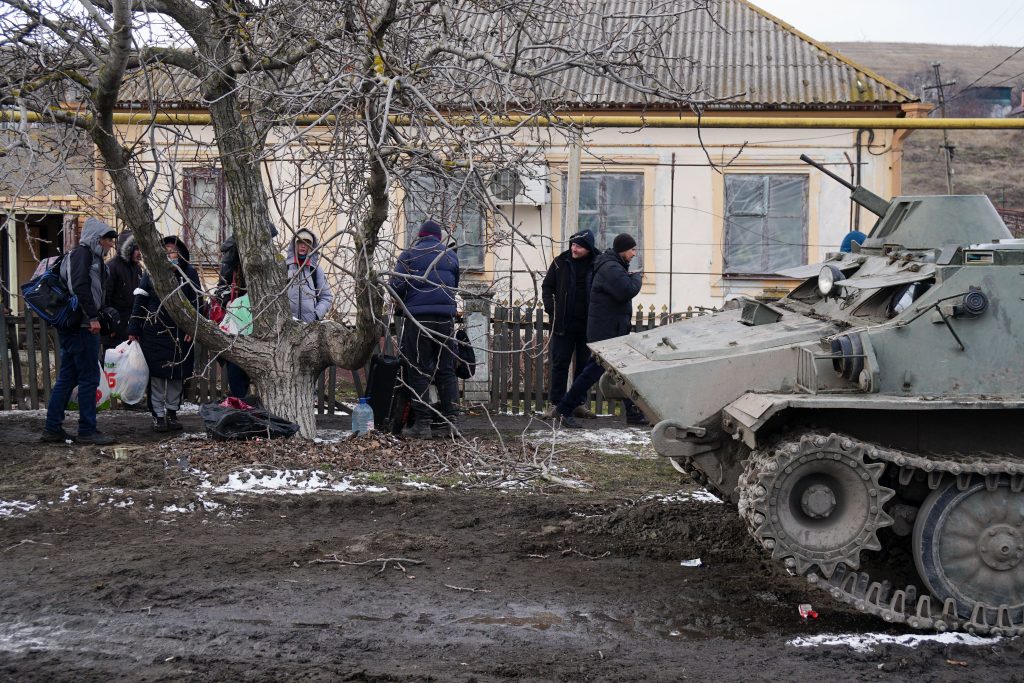In June 2021, I stood in the centre of Mariupol on a particularly hot summer day. I arrived, relieved to get off the regional sleeper train after a wearisome 13-hour ride. After living three years in Ukraine, this was my first visit to Donetsk Oblast.
The city was certainly rough around the edges but maintained a certain charm. Soviet relics were beginning to give way to young money and trendy beachfront cafes. The city’s younger residents had begun to look West, not East. They now study in Kyiv, Berlin, or the U.S.
Mariupol has always been a point of strategic interest and is home to steel manufacturing giant Metinvest. The horizon is dominated by megafactories, an industry of unbelievable scale by Western standards. The city controls the flow of steel from Ukraine to the world, from its commanding position on the shores of the Sea of Azov.
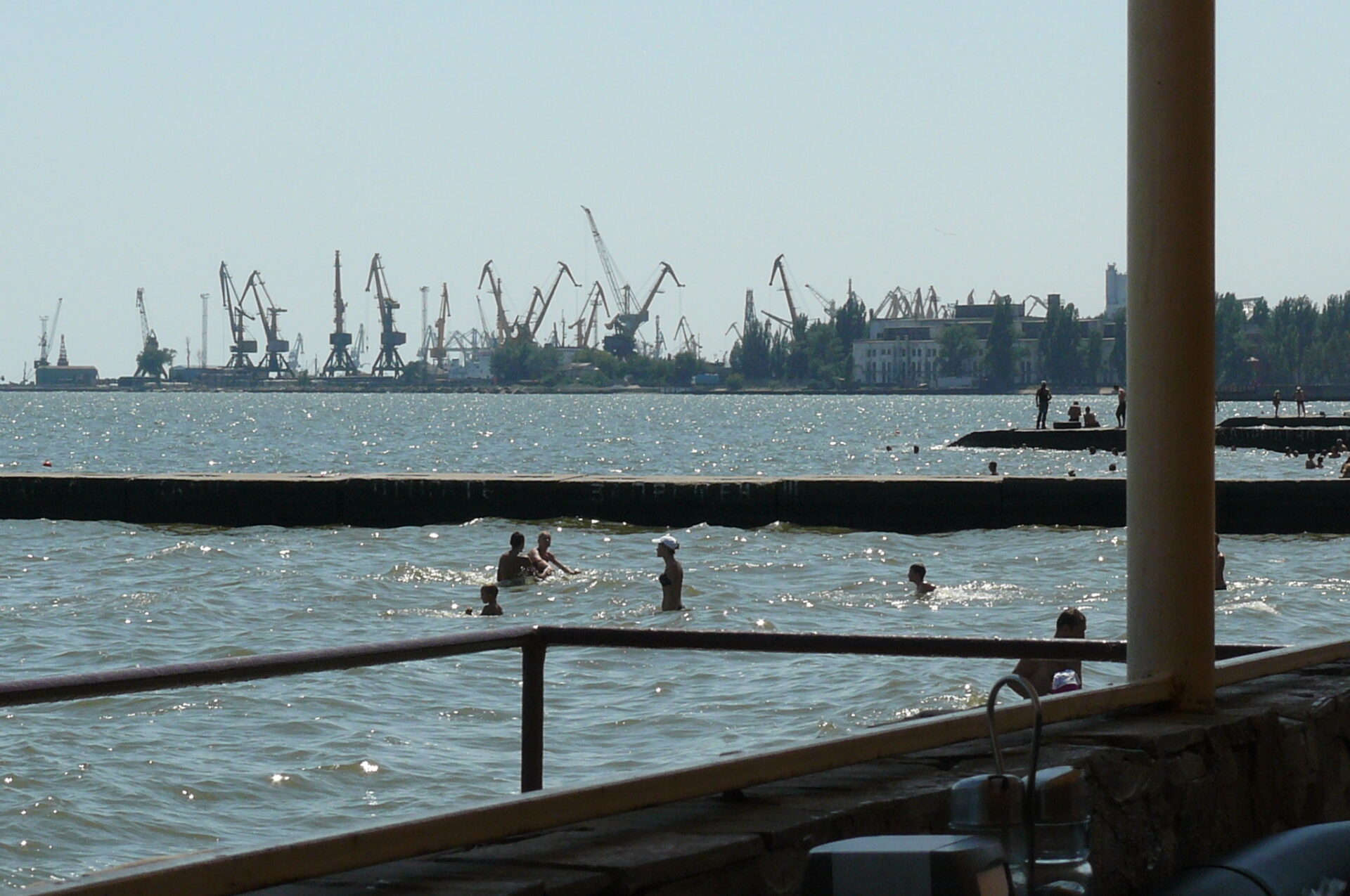
Summertime on the shore of the Azov Sea in Mariupol. Credit: Creative Commons
The locals spoke Russian, yet I never witnessed any signs of pro-Russian sentiment, bar the odd belligerent drunk. In fact, the attempted seizure of the city by pro-Russian separatists in 2014 had only hardened the locals’ resolve to remain part of Ukraine.
A few minutes from the town centre, I stood in front of the former Mariupol Police Headquarters.
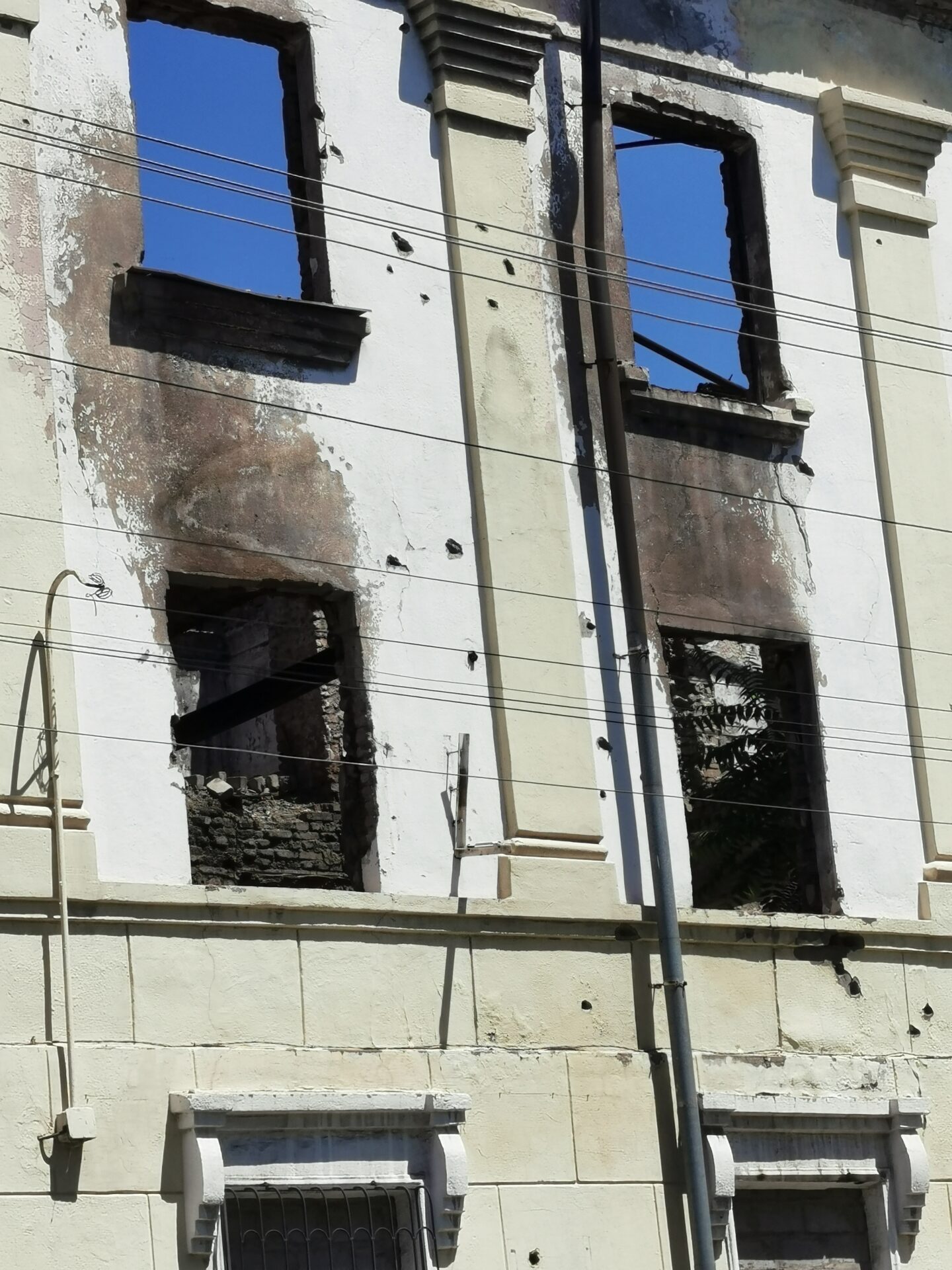
Bullet holes from Russian separatists' failed attempt to take the Mariupol Police Headquarters in 2014. Credit: Dylan Carter
Bullet holes riddled the stone structure. Back in 2014, the building had been attacked by pro-Russian militants with machine guns and rocket-propelled grenades. Defended by just a few dozen police officers, the Ukrainian forces inside refused calls to surrender to heavily armed rebels.
Despite destroying the building almost entirely, the rebels failed to take the strategic point. Pro-Russian forces failed to take the city and were eventually pushed out. While separatists could not hold onto Mariupol, other cities fell firmly under Russian control. Breakaway republics formed in Ukraine’s eastern Donbas, and Mariupol became a distant Ukrainian outpost on the edge of the “Russian world”.
In 2015, Russian forces attempted to take the city again. Mariupol’s eastern suburbs become a frontline.
In the eastern suburbs of Mariupol, I saw apartment buildings with missing windows. They had been shelled so many times, it was simply not worth replacing them, locals told me. The walls were peppered with rocket shrapnel and heavy machine-gun fire.
As I peered down into heavily used bomb shelters, I didn't think that they would soon save lives again.
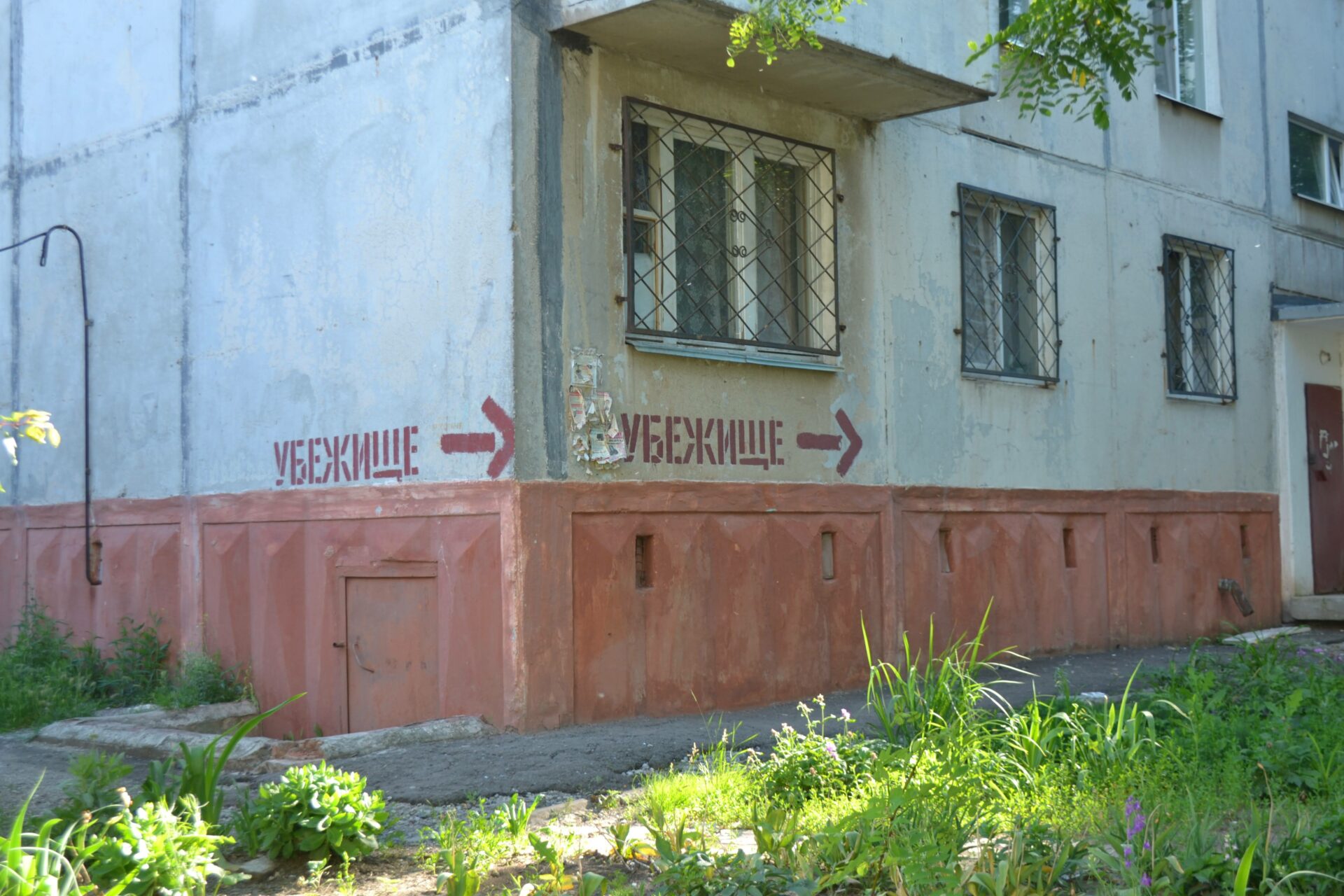
Credit: Melissa Gurusinghe
Just 800 metres down the road from where I stood, forces from the so-called Donetsk People’s Republic (DNR) surveyed Ukrainian positions. The rebels would continuously fire rockets and artillery at the Ukrainian housing complex until the signing of the Minsk peace accords. After that, only less frequently.
A few hundred yards away, a local woman looked out across the no-man's zone. Not too long ago, she enjoyed trips to Russia, to the territories now held by rebels. Even back then, her native Russian tongue made her suburb the target of Russian rockets. A member of the “Russian world,” waiting for liberation.
Death of the Russian world
Russia has consistently framed its aggression in the context of saving Russian speakers. In 2014, after its illegal annexation of Crimea, the Russian government defended its right to protect ethnic Russians and Russian speakers wherever they may be.
With its renewed violence in Ukraine, Russia has confirmed that its attempts to “liberate” or “protect Russian-speakers from genocide” only lead to greater suffering for Russian-speaking people.
Russia has forever destroyed the city of Mariupol. Local estimates state that nearly 90% of buildings in the city have been damaged or destroyed. In the pursuit of reunifying “New Russia” (Novarossiya) with the old motherland, Russia has burned its ties both culturally and linguistically to the region.
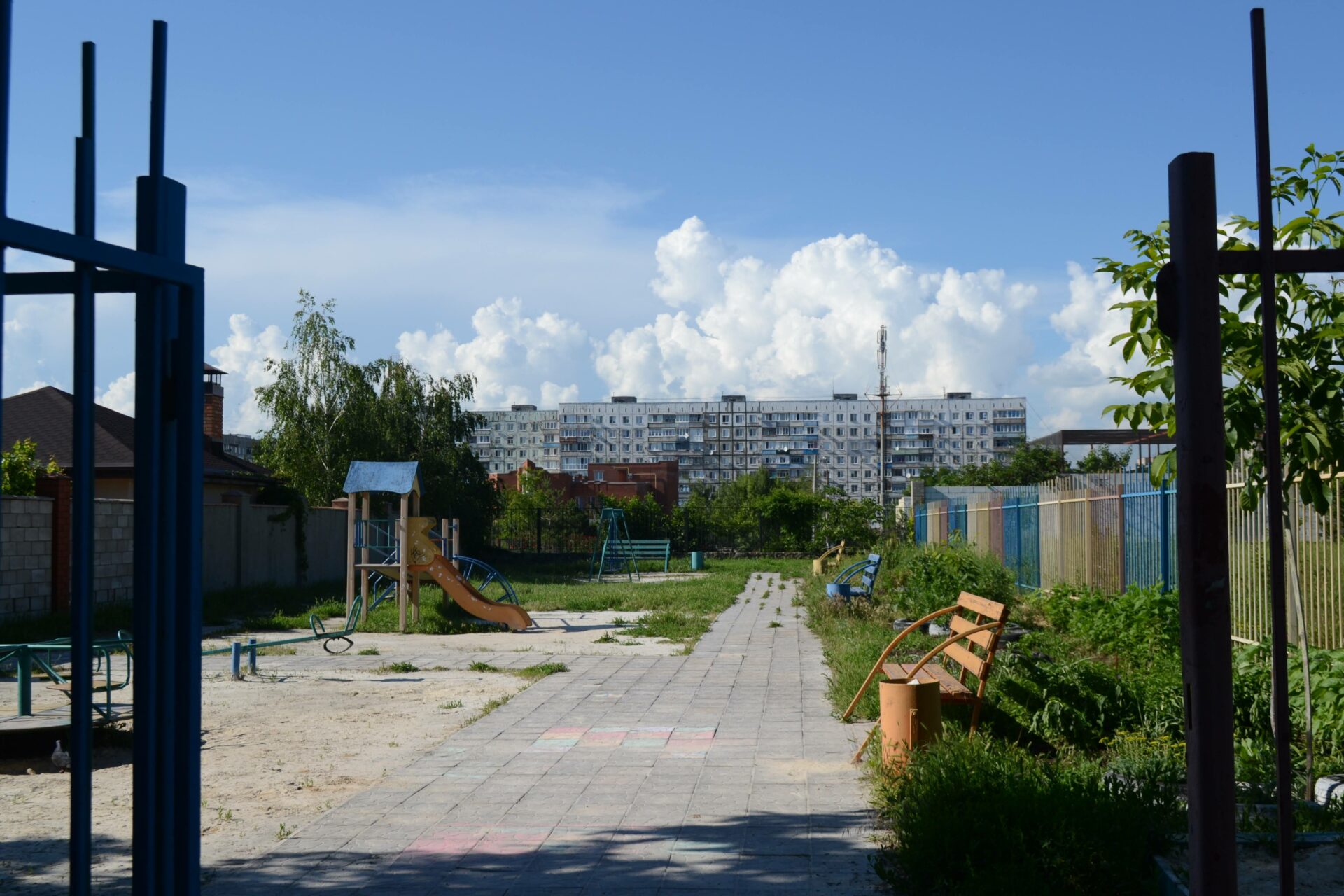
Credit: Melissa Gurusinghe
Russian bombing of the city has permanently stamped out the vestige of Mariupol's once-dominant Russian culture. Mass graves have been filled with the very people Russia launched its war to “protect.”
Those who survived the nearly constant bombing have fled. They have moved west, where Ukrainian culture is more dominant. In two generations, they will be indistinguishable from the local population of Kyiv or Lviv.
The notion of what it means to be “Ukrainian” has widened over recent years. Ethnic roots are no longer seen as a strict indicator of Ukrainian identity. Mr. Shevchenko is no more Ukrainian than Mrs. Kuznetsov.
Eastern Ukrainians, no matter their ethnic origins, have watched their countrymen killed, women raped, homes destroyed, and possessions looted. The bombs do not discriminate between ethnic groups, they kill everyone the same.
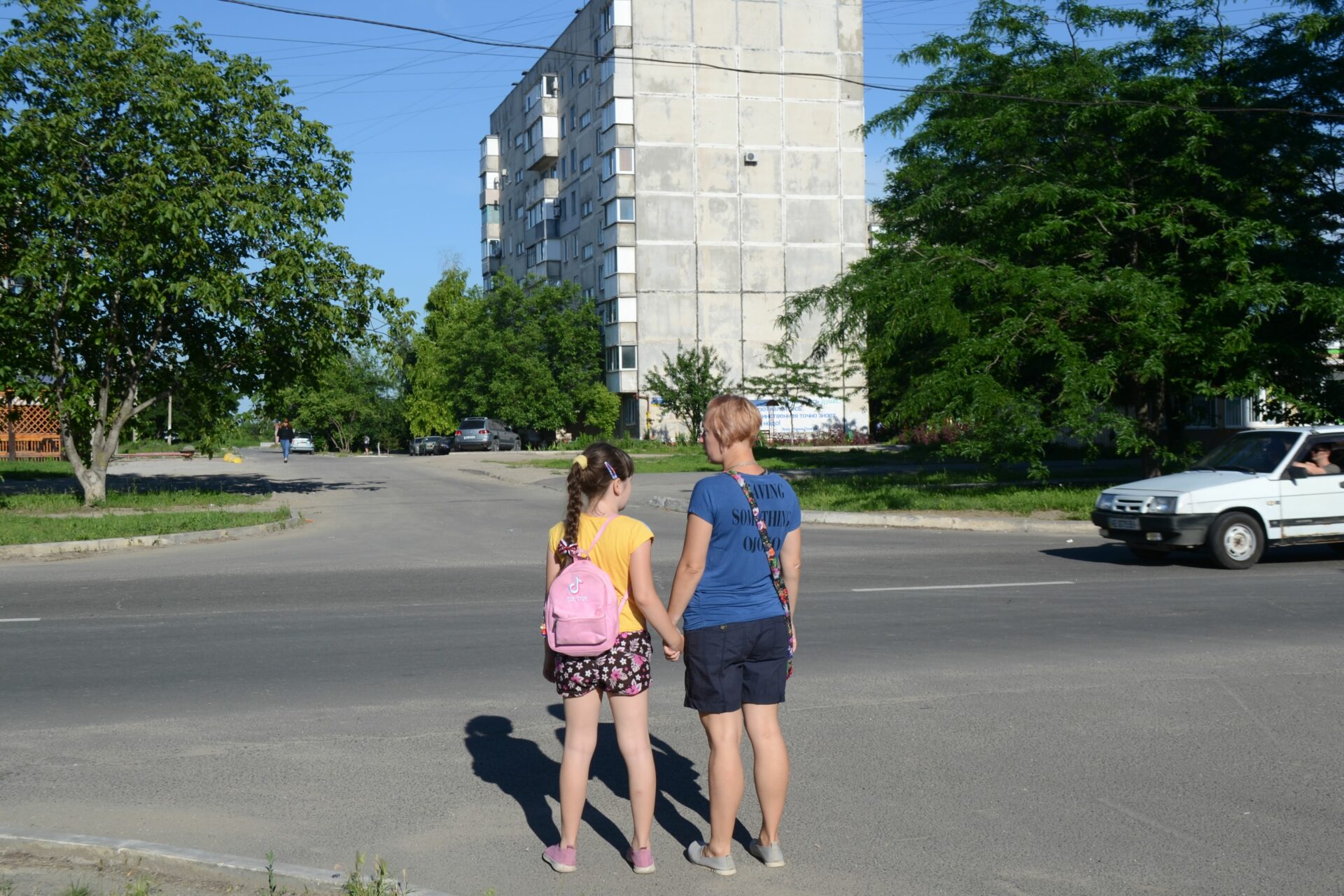
Credit: Melissa Gurusinghe
The war is an existential threat to all who live in Ukraine. The influx of displaced Ukrainians to the West and a new animosity towards Russia has rallied citizens around a new, unified Ukrainian identity.
Language is not a political issue for most. Russian and the Ukrainian language coexist in most regions of Ukraine. Though largely demoted to informal contexts, the Russian language has persisted as a lingua-franca in Ukraine, whether the government likes it or not.
Russia has always attempted to use the language question in Ukraine to sneak more radical policies in through the backdoor. Pro-Russian parties in Ukraine sprung up on the basis of the “protection of Russian speakers”, yet their rhetoric always hid a deeper desire to erase the cultural and physical boundaries between Ukraine and Russia: whether by stealth or force.
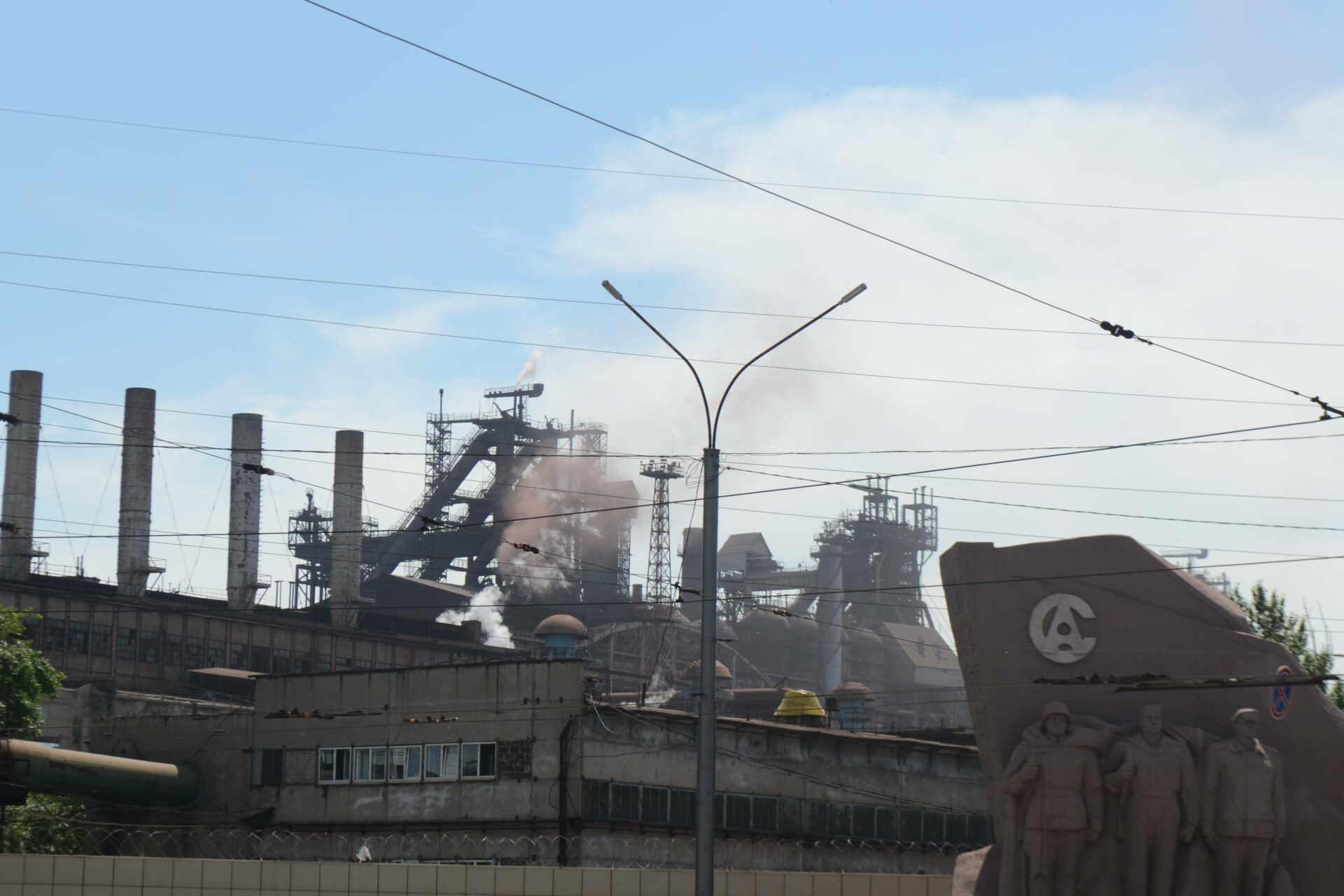
Credit: Melissa Gurusinghe
Yet by killing Russian speakers in Eastern Ukraine, Russia has only hastened the linguistic “persecution” it sought to prevent. Across the east of Ukraine, those same people that Putin considers belonging to the “Russian world” are turning their backs on Russia.
Where Ukrainian state language policy failed to promote the use of the Ukrainian language in the east outside of formal settings, Russia's brutal offensive is persuading the youth of the Donbas to drop Russian in favour of Ukrainian.
Droves have already made the switch. The Russian language is unlikely to disappear from Ukraine, but the cultural affinity it once held is dead and buried. Russian speakers don’t need protection from Ukraine, they need it from Russia.

